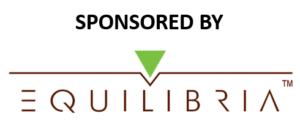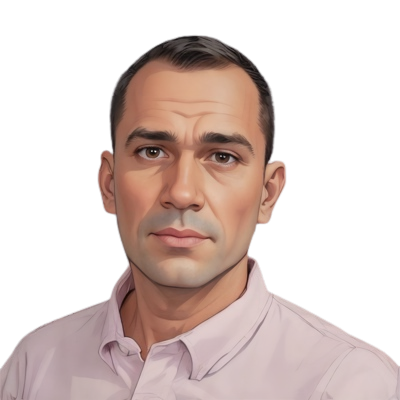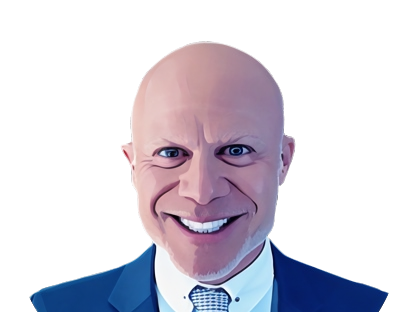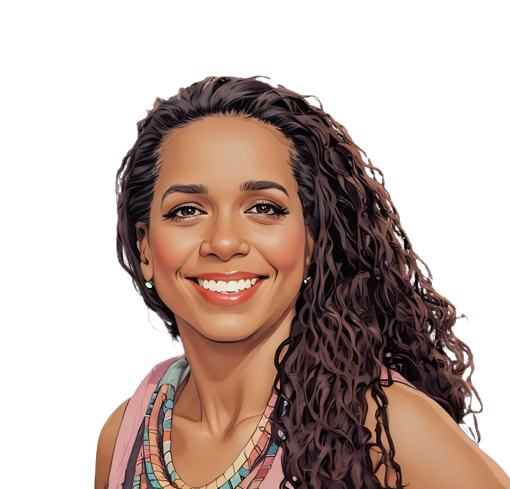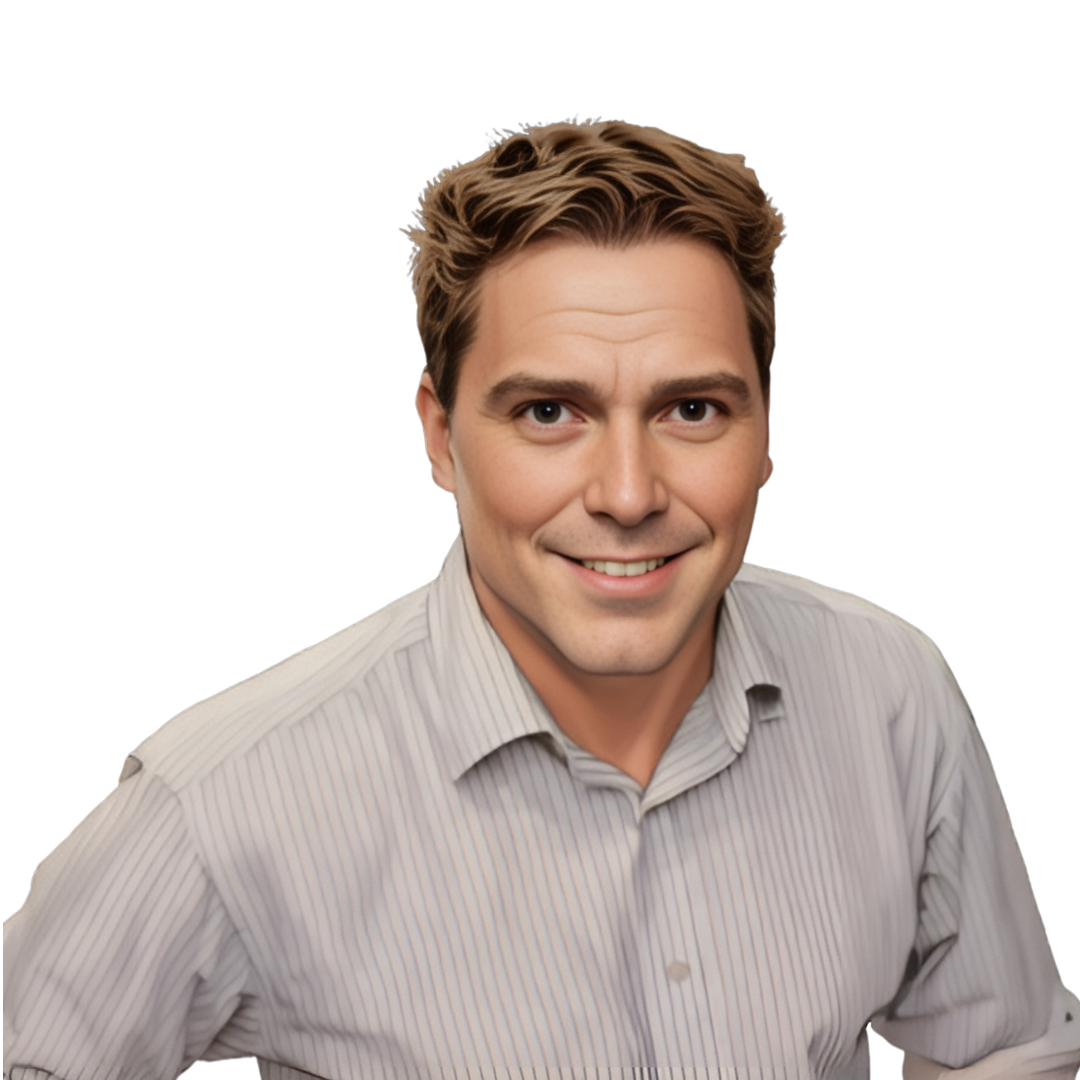Transcript
This episode is brought to you by Equilibria, Inc. Equilibria provides training to assist fast-growing companies in documenting and improving their key processes for maximum operational performance. Visit EQBsystems.com to learn more. That’s EQBsystems.com.

This is Scale Tales – the business storytelling podcast where entrepreneurs, executives and experts share firsthand accounts of those magical moments when they achieved something even they didn’t think was possible.
I’m Alicia Butler Pierre, host and producer of Scale Tales. In the previous episode, you heard an audio version of my recent TEDx Talk. It’s about the importance of relocating to have your talents recognized and rewarded. In this episode, I’ll be your guide as you hear from someone who also found success in relocation and who, in my opinion, defines tenacity.
This is Ep. 11: How Max Emma Scaled His Accounting Firm via Franchising.
I’m Max Emma, and I’m the CEO of BooXkeeping Franchise. And this is my scale tale.
It started on January 13, 1993, when, at the age of 18, I landed at the JFK airport from the former Soviet Union and with my whole family, immigrated to the United States, leaving behind my childhood, my friends, people that I’ve known for many years, and starting new life from scratch. And now looking back, it’s been a great journey. Luckily, it’s still going on. And I learn every day. I grow every day, and I want to believe that I’m scaling every day.

First, when I came to the United States, I had to figure out how to learn English. And obviously I went to English school, and then later I went to college and graduated. But in the beginning, you know, I knew basic English, but no more than that. And somebody told me that the hardest part is to learn how to speak on the phone. And so I’m like, Well, I’m gonna practice. And I had to come up with something outside of the box – to actually call a bunch of credit cards,
American Express, Visa, Mastercard, and talking to them about applying and getting their credit card.
Back then, in 1993, all the support centers were still in the United States. So I was speaking to native English speakers, for 40, 45 minutes. And of course, I wasn’t qualified to get a credit card. I knew that, but I was getting free practice, and as soon as Visa would tell me that, “Hey, you cannot do it,” I would call another company, then another company, and I would do that three to four hours every day. So before I knew, I was more or less fluent in English. And then, of course, I started going to university and getting my degree, and I got a job. I wish I could have trademarked this way of learning English, because it did help me a lot. Looking back, I think that was the beginning of my entrepreneur journey.
And what a beginning it was. The year was 1998. Max graduated from San Diego University and soon found himself working in corporate finance and accounting for Qualcomm, one of the largest employers in San Diego, California. Just as the company’s stock was growing, he did the unthinkable…he left.
They were going to pay for my MBA. But after about four years, I realized that corporate world is not for me. My joke is that I am not very good in kissing somebody’s butt because I’m always kissing the wrong one. I actually gave a two-week notice, which was really weird. People did not understand what I did.
I just said, “You know, I’m leaving.” And I joined the small family business with three employees. That was a landscape business that later I grew to 96 employees. And it was very successful. It was doing just wonderful until the recession started.
And I ended up in the situation where we stopped making any money because people were stopped building houses and we were doing track homes here in southern California, and we’re doing hundreds of them. But we still had a lot of equipment, a lot of things that we had to pay for. So, we were definitely overcapitalized. And I, I did not have a choice but declare bankruptcy.
And back then, with a little baby and one more baby on the way, that was the scariest thing that could happen to me at a time. And me and my wife we were talking that, Hey, we wish we would have known our financials better and realized that that’s going to be happening sooner, so we at least could have prepared for that. But we didn’t. Funny enough that I had a degree in finance and she had a master’s in accounting. So, we weren’t strange to finances and financial
statements.

We just never paid attention because the business was doing so great. And that probably was the first sign that maybe accounting is in the future for us. But, we had to feed the family. We had to come up with different plan, definitely wasn’t accounting. Not too many companies were hiring. So we started the landscape maintenance company. And this time we were more successful. Eventually we sold it and made money for this business.
We tried to hire a bookkeeping company here in San Diego and we got 20 estimates. For exactly same scope of work, ranging from two hundred dollars to two thousand dollars. I knew from day one that this is not healthy. $200 to $400, I get it. 400 to 800, I get it. But 200 to 2000, it’s not possible. So we knew that there is a market that can be disrupted and we can do that. So we cofounded BooXkeeping.
By now it was 2011. Max and his wife, Elena, co-founded BooXkeeping out of necessity. As the expression goes, “Necessity is the mother of invention.” BooXkeeping is cleverly spelled with an X and despite the naysayers, Max and Elena were able to legally trademark BooXkeeping.
So BooXkeeping was ours, and then we started doing it, and the rest was history. In the beginning, I was trying to get clients part time, because the other part time I was running landscaping company and Elena was staying home with kids and, doing the actual accounting work. And then we got the first employee, and then later we got the office.
We did sell the landscaping company and concentrated on BooXkeeping. Was a slow start, but it was interesting. I met very cool people in the industry and got to know the CPAs in the city and bankers. So it was a lot of fun. And then by accident, a few years in, we got into franchising by doing bookkeeping for small franchisor, one of their franchisees, then two, then three. Just to make the long story short, right now BooXkeeping is the preferred bookkeeping provider for
about 100 franchise brands in the United States. In all 50 states. Some of them are big names like Sport Clips, Fast Signs, Signarama.
Some are emerging, but fast growing. And several of them actually make us mandatory for their franchisees. So that’s awesome because, you know, that gives us an opportunity to grow and we add new brands at all times. But I don’t know if it’s my blessing or curse. I can’t stay in the same place for a long time. I always want to do something new. Like, I just want to have fun. And for me, I strongly believe if you stop growing, you’re dying. I definitely not ready to die yet. So I want to grow.
Remember, Max and Elena knew they could disrupt the accounting services industry. Working with so many franchise customers eventually led to that disruption.
We decided to franchise our concept. And now BooXkeeping is selling its own bookkeeping franchises. Just yesterday, we sold franchise number twelve. We are now in seven states. By the end of next year, we should be at 40 to 50 franchises sold and operational. At least this is the goal. And all the bookkeeping clients that we’re getting from other franchises are actually becoming clients for our franchisees. So, one system is fitting another.

In case you’re unfamiliar with the world of franchises and don’t quite understand how Max was able to scale BooXkeeping using this business model, then listen closely as he clarifies.
It’s hundred franchise brands that we are preferred bookkeeping provider for. Some of them we do 50 of their franchises. Some of them we’re doing 80. Some of them we’re doing three. But, you know, there are hundred names, hundred brands, and we are doing bookkeeping for their individual franchisees, different quantities of people. In most cases, not all of them, we have been talking about 60 or 70 locations in the United States for some of the brands.
Does that make sense now? Do you understand why that’s so impressive? We often see franchises like McDonald’s, so imagine having a contract with the corporate office of a franchise like that and then becoming the preferred vendor for a large percentage of their franchisees. Having this kind of growth usually means hiring more people. BooXkeeping currently has 23 employees at their headquarters. I asked Max how they grew the team.
Well, it’s definitely a journey. The first employee whom we hired was coming to our house. We didn’t have an office, and she was working out of the garage. And then just literally, the hard work and doing the networking and meeting new people, we were getting more and more clients. So that’s how we started growing. And what helped us in the beginning.
One thing I left and I didn’t talk about when I was going to school. I was working at Costco. I was working there for five years, and Costco was a great employer. They were even giving me a scholarship because I had good grades. But one thing Costco did, they never covered my school schedule. And I had a weird school schedule because I wanted to graduate as fast as possible. So I was taking classes in the morning, classes at night.
And they always made sure that I had an opportunity to go to school when I wanted to go to school and take classes. So I told myself, when I grow up and if I ever have my own company, I’ll make sure that I’ll give the same opportunity to other students. And so we started hiring students from San Diego State University. We opened an office not far from the campus, and we had a lot of good accounting students working for us in between their classes. So that’s how we were able to scale in the beginning. Then, of course, we started hiring full-time employees, but in the beginning, it was mostly students working part-time in between their classes. Juniors, seniors, master programs.
What a great way to pay it forward. Okay, back to the timeline. BooXkeeping started in 2011 with a team that included one full-time employee and some part-time students. Nine years later, as you’ll hear from Max, is when they were ready to franchise BooXkeeping.
Well, that date, I will never forget, because we officially got the permission to start doing franchises the day the whole country went into lockdown, March 16, 2020. As you can imagine, on paper, we were selling franchises, but in reality, we had to make sure we adjust the business and make sure that the business is working. Yes, we do have all these employees right now, and they’re all part of BooXkeeping family.
But we do have an office in Philippines. We do have an office in Barcelona, Spain. We have people in the United States. So imagine how many moving parts we had to work when Covid started. And a lot of countries got hit way harder than U.S. Like in Barcelona, for example. You only could leave the house 30 minutes every day to go to the store, something that we did not experience in the United States.

So obviously, we had to shut down the office and move every employee home and move their computer, so, so that was not fun, to say the least. I’m not complaining. It actually helped us to change and scale eventually, but was interesting experience. So for the first year and a half, even though we were selling franchises, we weren’t selling any franchises.
But that selling slump didn’t last long. Soon, they really were selling franchises…fast! Coming up after the break, Max will share how he did it.
Some small businesses fail not from the lack of customers, but from too many. When your business receives positive publicity, it’s exciting! The spotlight attracts more customers and the cash flows in. But too much growth too soon can be catastrophic especially if your organization lacks the business infrastructure to support this growth.
Behind the Façade: How to Structure Company Operations for Sustainable Success is a book that introduces a proven framework for building business infrastructure. The book is structured into six relatable stories of entrepreneurs who apply this framework, giving
you an inside look at how they solve their fast growth issues and how you can too! Pick up your copy today at ScaleTalesPodcast.com. ScaleTalesPodcast.com.

We’re back. Before the break, Max Emma, the founder and CEO of BooXkeeping shared how he started this accounting firm, grew a team, and began scaling via franchising. Although the franchising started slow, by 2023, things really started to accelerate. Here’s
Max.
People wanted to see the proof of concept. And when we had one and then two, they were like, “Well, you’re too new. Are you gonna stay or you’re gonna fold?” And now people saying that we are here to stay, and now we see more and more interest and more and more people reaching out to us. So I can tell you that out of twelve, we sold eight this year.
That’s amazing, isn’t it? I wondered if Max attributed his success with BooXkeeping to his professional education in franchising.
I became a certified franchise executive. When we were creating BooXkeeping franchise. Franchise is a pretty complicated thing. You have to write a lot of agreements, and do like marketing plan and brands manual and so on, so forth. And we did hire a lot of great consultants and people to help us, but a lot of the work was done in house. So I learned a lot.
I went back to school, to University of Louisville, and got my certified franchise executive. That was done when BooXkeeping franchise already started. But that gave me huge knowledge. And then what a certified franchise executive did for me, I decided that, you know what, I probably can do more than just offer people BooXkeeping franchise. Because let’s be honest, accounting is not for everybody.
I mean, our BooXkeeping franchise is unique in a way that you don’t have to be an accountant to run it, because we provide not only clients to our franchisees, but we provide them staff as well. So literally it can be a turnkey. However, it’s not a good match for everybody. So now I am a certified franchise consultant, which in simple language means that I run a franchise brokerage. So, I have access to about 650 franchise brands that are not BooXkeeping. And I can
help people to pick one that is right for them and help them to get started.
But the most beautiful part about it, that my services are absolutely free to the candidates. Only if they end up buying a franchise we get paid by a franchisor, so we’re not charging them a penny, it doesn’t cost them anything. We come in, we talk to them, we together decide what works for them, what they want to do, where they want to be in three years, and then connect them with the correct franchise brand. And hopefully if they end up buying it, then we get paid.
If not, then I hope I did something right and helped somebody to move to the next level.
Speaking of moving to the next level. I wondered what’s next for Max.
It took me a while to understand what’s common between all of my businesses. And I know it’s not modest, but I understood that this is my personal brand. This is Max Emma. So right now, it’s not just the BooXkeeping. The brand is Max Emma. And I created a website, FranchiseWithMax.com. and that’s actually where anybody can find me.
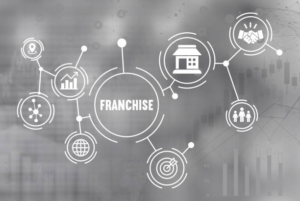
Going to this website, people have a choice if they want to talk about bookkeeping for their business or for their franchise, if they want to buy a bookkeeping franchise, or if they want to consider buying a franchise in any other industry, pizza place, you know, sign shop or medical clinic, whatever it is. So right now, it’s three businesses. They all are around franchising. One is bookkeeping for franchises, one is actual bookkeeping franchise, and then franchise brokerage.
But I want to be very, very clear that even though it is my brand and it’s Franchise With Max, I have teams in each of the business to do the work. I have people that I can delegate it to. It’s not that I’m doing everything by myself. It’s physically impossible. But that was part of my journey, to stop micromanaging and start trusting people and started delegating. That’s when I’ve seen the growth. If I would not do that, I would still be with one employee or no employees,
working from home. It was very hard. It’s easier said than done, but I’m glad I did it. I’m glad I actually, you know, believed in others. And again, it was hard. But that’s definitely part of my journey.
I say it all the time, entrepreneurship is not for the faint at heart. It is hard, but also incredibly rewarding! Before Max wrapped up his scale tale, I asked if he had other advice and resources he’d like to share.
Well, I do, and they’re not my original thoughts but they actually make a lot of sense. So one of them, what they taught us in business school, when you start a business, always think how you can exit this business. So in other words, have a business plan. Some people go into business like, “Well, I’m gonna grow it, and then I’ll see what I’m gonna do with it in 20 years.” No, if you want to sell this business in so many years, then you have to build it one way.
If you want to pass it on to the second generation, you have to build it differently and that can change over the years. Okay. So it doesn’t mean that if you plan to do it one way, you’re going to stick to it, but at least have a plan and follow the steps to get there. And then second was that what happens in life does not happen to me, but happens for me. I’ll be honest with you, Alicia, for a long time, I had hard time talking about bankruptcy because I was embarrassed.
So it’s still part of my journey, but maybe only for the past six months or a year I started talking about that and telling people what I had to go through because I saw that was the end of my career as entrepreneur because I thought, like, literally, this is it, I’ll never get out of that. And took me a while and I guess I became older and hopefully wiser to realize that, Hey, it did happen for me and I learned. And if it would not happen, I wouldn’t be where I am right now.
The book that I strongly recommend for everybody who is an entrepreneur, it’s called Ten X is Easier Than Two X by Dan Sullivan and Ben Hardy. This book is awesome. I probably read it four or five times, but Dan Sullivan is executive coach that runs an organization called Strategic Coach. So I became a part of it probably three years ago, and that changed my trajectory. How I run businesses, how I live life, I attribute to coach all the growth and having multiple businesses and actually delegating. So Strategic Coach is really awesome.
And then for the networking, what helped me to grow my business, I became a part of organization called Provisors. And they’re not in every city, but in many markets. It’s a great organization that I’m a part of. Even though it’s more like a local networking group, you have access to other members in other markets in the United States.

I just encourage listeners to go to Franchise with Max and decide if they want to have a conversation. And yes, I do have teams of people in each and every of my businesses, but ultimately people still have access to me and we still talk and we still do business together.
Let’s have a conversation and see how I can assist. And again, if it’s just a conversation and support somebody, I’ll be more than happy to do that.
I love how Max is so willing to share his knowledge and always pay it forward. We need more entrepreneurs in the world like him. It’s so easy to see or read about people that we have great admiration and respect for and mistakenly think that they’re journey is clean or straight and narrow. But you and I both know that is not how life is. It can get t very messy. It can be filled with different obstacles hat we have to overcome, hurdles that we have to work around. With that in mind, here’s a recap of some important lessons learned from Max in this scale tale:
1. Monitor cash flow. Don’t just focus on what’s coming in, but also on what’s going
out.
2. Address your weak spots. Don’t ignore them!
3. Never allow shame to prevent you from trying again.
4. Hire students to save on labor costs.
5. Delegating is hard. Don’t micromanage. You’ll stifle growth.
6. Take lemons and make lemonade – bankruptcy.
7. Take your knowledge and apply it in multiple ways.
8. Write a business plan based on your end game: sell, succeed?
9. In our toughest, darkest times are our best opportunities to grow. Even
caterpillars struggle to become butterflies.
Thank you, Max Emma, for sharing your scale tale with us. You can visit Max on his website where you can request a meeting with him as well as read different articles he’s provided. Although he runs many businesses, he has systems that enable him to be accessible. Visit us at ScaleTalesPodcast.com to access links to these resources as well as in this episode’s show notes. Again, that’s ScaleTalesPodcast.com.
Thank you for listening! If you learned something valuable from this episode, please leave us a five-star rating and review wherever you’re listening.

I’m Alicia Butler Pierre and I produced and narrated this episode. Music production and original score by Sabor! Music Enterprises. Video editing by Gladiola Films. Show notes by Erika Ve Revilla.
You’ve been listening to Scale Tales, a podcast by Equilibria, Inc.
